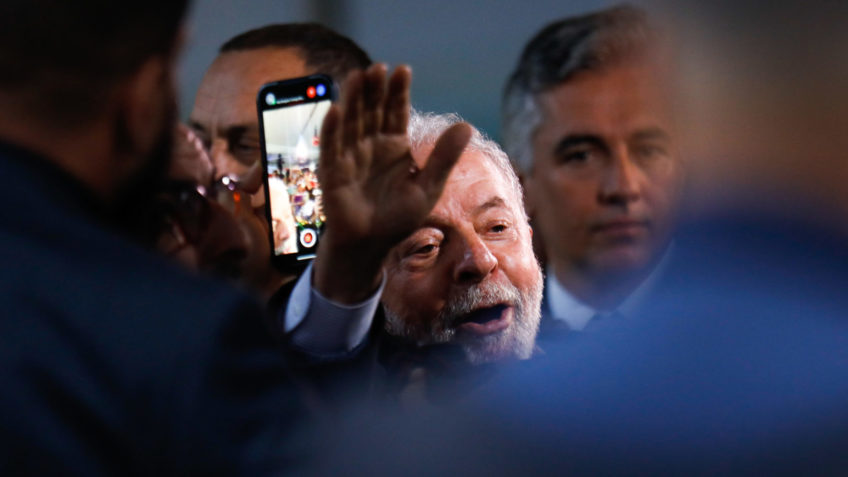The president-elect, Luiz Inácio Lula da Silva (PT), said this Thursday (Nov. 10) that the Brazilian financial market is “sensitive” and was “nervous for nothing”.
However, a few days ago, he showed no qualms about fiscal responsibility and sought an agreement with Congress to allow a significant increase in public spending in the 2023 Budget.
No compensatory measures were announced; it sought to consume the surplus inherited by Bolsonaro.
His economic team is preparing its first draft of Brazil’s Budget for 2023.

The PT’s project aims at a brutal increase in public spending to finance the expansion of social benefits, remunerations in the public sector, and more public works.
The PT (left) aims to modify the “Auxilio Brasil” program again to increase the allowances from R$ 400 to R$ 600 for the beneficiaries, as well as the generalization of the program and its name change to “Bolsa Família” again.
Secondly, an actual increase in the minimum wage is proposed, a measure that directly affects the State’s spending on remuneration.
The project requires a budget increase of R$200 (US$38) billion for the fiscal year 2023.
The Brazilian left is seeking an agreement with Congress to resolve the spending increases, despite the fierce opposition of legislators who responded to Jair Bolsonaro.
At the same time, Lula da Silva’s team is proposing an increase in the basic standard income tax deduction (the non-taxable minimum) from R$1,904 to R$5,000 by 2023.
This action exceeds the update for inflation, scheduled by Bolsonaro’s budget, and will have a fiscal cost of up to R$120 billion annually.
But the measures imply the complete abandonment of fiscal responsibility in Brazil. The President-elect aims to dismantle budgetary rules.
Since 2000 the country has applied rules on expanding public spending (reinforced in 2016 and 2021 by Temer and Bolsonaro), and these limitations are incompatible with the socialist budget project.
Lula da Silva will seek to eliminate the legal “ceiling” on public spending, regardless of the corresponding impact on public finances, gross federal debt, and price stability.
Not only is no correct measure proposed based on compensatory adjustments in other areas of the Government or tax increases, but the socialist package intends to consume the entire primary surplus achieved by the management of Bolsonaro and Paulo Guedes in the Economy portfolio.
Brazil’s federal government maintained a fiscal surplus of 0.87% of GDP in the annual accumulated for September after a tremendous corrective effort following the end of the pandemic.
The arrival of Lula da Silva to power threatens to boycott fiscal discipline and, with it, the return of inflation and fiscal dominance.
In the same way, the Liz Truss government ended, saving the exacerbated ideological differences between the two models, Lula da Silva’s fiscal program is inconsistent.
It could induce a strong run against inflationary expectations and the Brazilian real’s deterioration.

